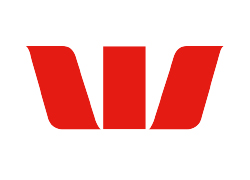We’re proud to be the voice of NZ retailers
As the peak body for New Zealand retailers, advocacy is a core mission of Retail NZ. By lobbying Government Ministers and policymakers, we make sure your interests are heard at the Beehive and at all levels of government. Here’s an outline of some of the advocacy work we do at Retail NZ.
See current consultations open to feedback from members
Read recent submissions we’ve made on the issues that matter to retailers
Join our working groups on ongoing retail issues.
What we stand for
What we do
Your voice matters: the input and feedback we receive from members is invaluable to our advocacy work.
What we’re working on right now
Open consultations we are seeking Retail NZ member feedback on will be listed here, so check back regularly to see current topics of interest. If you are aware of any other issues we should be commenting on, get in touch at [email protected].
Vocational education and training · The government is consulting on the future of the vocational education and training system. The Education and Training (Vocational Education and Training System) Amendment Bill will re-establish a network of regional polytechnics and establish industry skills boards to replace workforce development councils. Share your views with [email protected] by 11 June.
Recent submissions to Government
Retail NZ provides the Government with retailers’ views on law changes and legislative proposals. Read our recent submissions.

Join our working groups
We have set up several working groups for members to provide input into our advocacy efforts. These include groups on Retail Crime, Sustainability, Retail Payments and Holidays Act/Employment issues.
We welcome all perspectives from retailers, large and small. If you or a colleague are a Retail NZ member and interested in participating in one of the below groups, please contact [email protected].
Retail payments system
Making the cost structure of payments simple and easy to understand is critical to support ongoing uptake of new technologies, and to ensuring that payments on retail transactions are safe and seamless. Retail NZ is actively advocating for a more efficient and transparent retail payments system, with support from members of our working group.
Join this working group
Read our position on payments
Retail crime
Retail crime presents a health and safety risk to employees and customers, and to the financial sustainability of retail businesses. With support from our Retail Crime working group, Retail NZ is working to develop solutions to support retailers in the fight against crime.
Join this working group
Read our position on retail crime
Visit our retail crime advice hub
Sustainability
Protecting New Zealand’s environment is a shared responsibility between producers, manufacturers, brand-owners, retailers, consumers, and central and local government. Retail NZ’s Sustainability working group seeks solutions for retailers’ environmental challenges, and shares information on best practice.
Human resources
The Government is reviewing a wide range of employment law in 2025, including the Holidays Act, Health & Safety at Work Act and the Employment Relations Act. Retail NZ will respond to these consultations with support and input from our Human Resources working group.
Want to know more?
If you have enquiries about the above or any other issues affecting your retail business, email [email protected].

















